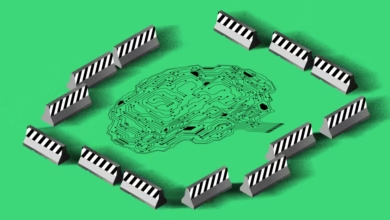Ted Cruz Struggles to Unite GOP Against State AI Laws

▼ Summary
– The Senate parliamentarian ruled that a Republican proposal to penalize states regulating AI can proceed without needing 60 senators’ approval.
– Sen. Ted Cruz proposed a 10-year moratorium on state AI regulation by tying it to broadband funding eligibility, though the measure lacks full Republican support.
– Cruz modified his original plan to comply with Senate rules, now only denying states the $500 million AI fund (not the $42 billion broadband fund) if they regulate AI.
– The original proposal would have blocked states from receiving BEAD program broadband funds if they regulated AI, but this was revised to gain support.
– The latest version aims to protect states’ access to the $42 billion broadband fund while still discouraging AI regulation through financial penalties.
The debate over artificial intelligence regulation has taken center stage in Congress, with Senator Ted Cruz facing challenges in rallying Republican support for his proposal to limit state-level AI laws. While the Senate parliamentarian cleared the way for Cruz’s measure to advance without needing a supermajority vote, the Texas senator has already been forced to scale back his original plan due to opposition within his own party and procedural hurdles.
Cruz initially sought to impose a 10-year moratorium on state AI regulations by threatening to withhold broadband funding from states that attempt to govern artificial intelligence development. His approach differed from the House version, which proposed an outright ban, because Senate rules restrict what can be included in budget reconciliation bills. The Byrd rule allows senators to challenge provisions deemed unrelated to the budget, requiring 60 votes to override such objections, a high bar in today’s divided Senate.
The original proposal would have blocked states from accessing the $42 billion BEAD program, a critical broadband expansion initiative, if they passed AI regulations. Cruz attempted to justify the inclusion by adding $500 million in new funding specifically for AI infrastructure development under the same program. However, reports indicate he has since revised the plan, now only restricting states from the smaller AI-specific fund rather than the much larger broadband deployment pool.
This compromise reflects the political reality Cruz faces. Many states have already invested significant time and resources into broadband expansion plans, making the threat of losing those funds a nonstarter for some lawmakers. While the updated version may improve the proposal’s chances, it remains unclear whether Cruz can secure enough backing to move forward. The latest text of the bill has not been released, leaving questions about its final form unanswered.
The ongoing negotiations highlight the complex balance between federal oversight and state autonomy, particularly in emerging technology sectors like AI. As policymakers grapple with how best to regulate these advancements, the outcome of Cruz’s efforts could set an important precedent for future legislative battles. Updates will follow as more details emerge.
(Source: Ars Technica)






